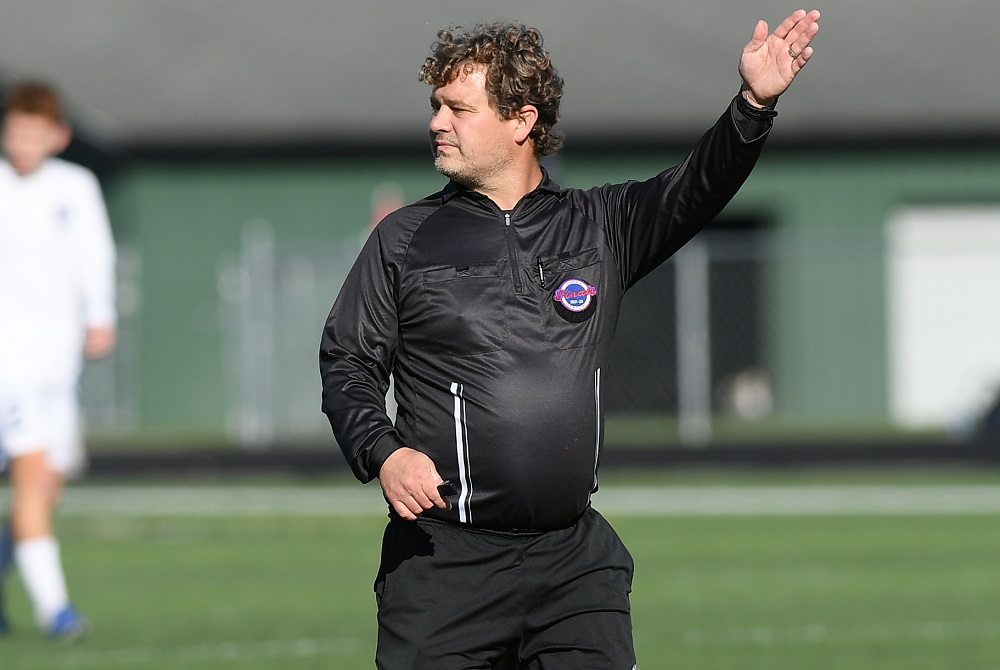
Be the Referee: YMTC - Face Guarding
September 6, 2018
In this week's edition, MHSAA officials coordinator Sam Davis takes us through a "You Make the Call" scenario regarding football face guarding.
Be The Referee is a series of short messages designed to help educate people on the rules of different sports, to help them better understand the art of officiating, and to recruit officials.
Below is this week's segment – You Make the Call: Face Guarding - Listen
Let’s check out your knowledge of high school football rules with a “you make the call.”
The quarterback drops back to pass, and his intended receiver gets a step on the cornerback. As the ball approaches the receiver, the defensive player sticks his hands and arms out in front of the receiver’s face without contact. The receiver loses sight of the ball, and the pass falls to the ground.
What’s the call?
A national high school playing rule instituted last year removed the penalty for face guarding without contact. The change brought high school football rules in line with collegiate and professional rules. The pass is incomplete and there is no flag for defensive pass interference.
Past editions
August 30: 40-Second Play Clock - Listen
August 23: Football Rules Changes - Listen

Be the Referee: Soccer Timing
By
Sam Davis
MHSAA Director of Officials
September 20, 2022
Be The Referee is a series of short messages designed to help educate people on the rules of different sports, to help them better understand the art of officiating, and to recruit officials.
Below is this week's segment – Soccer Timing - Listen
One of the biggest complaints people make about professional soccer is never knowing how much time is really left in the game. The clock counts up from zero, and the referee can add time at their discretion.
But that’s not the case in high school soccer.
To start with, halves are 40 minutes, not 45. The clock starts at 40 and counts down. And when players are injured and the ball is not in play, the clock will stop and then restart when action is ready to continue.
In the last five minutes of the game, the clock stops for substitutions by the leading team, so a coach can’t stall by sending in a new player. When the clock hits zero and the buzzer sounds … the game is over. There’s no guessing how much added time there is – the end of the game is the end of the game.
Previous Editions:
Sept. 13: Volleyball Replays - Listen
Sept. 6: Switching Sides - Listen
Aug. 30: Play Clock - Listen
Aug. 23: Intentional Grounding Change - Listen

